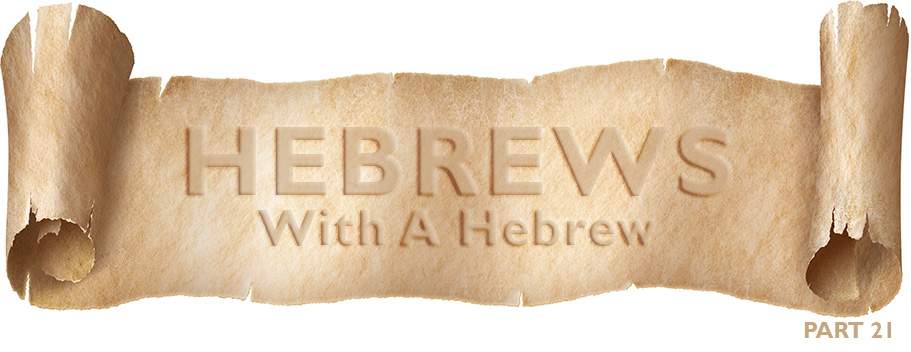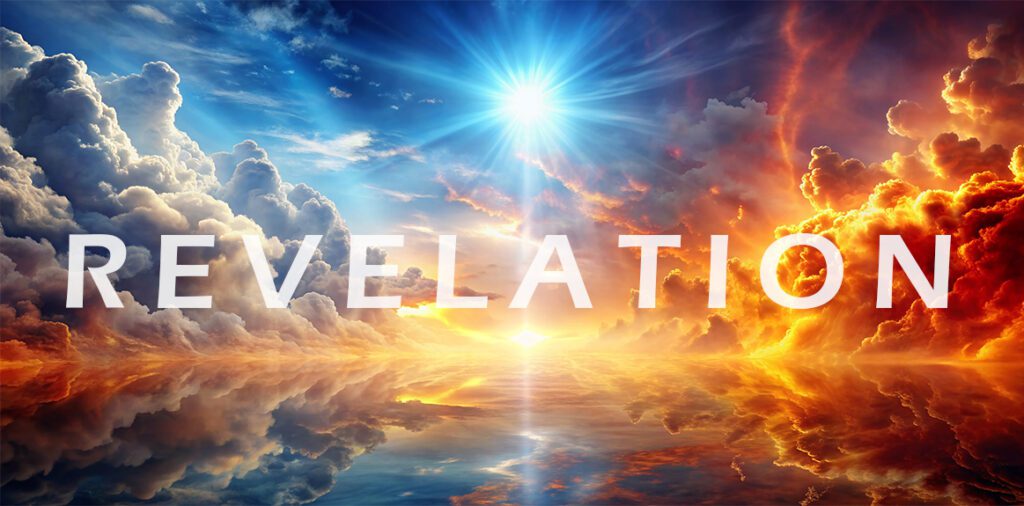Redemption Through the Blood of Christ
But when Christ appeared as a high priest of the good things that have come, then through the greater and more perfect tent (not made with hands, that is, not of this creation), he entered once for all into the holy places, not by means of the blood of goats and calves but by means of his own blood, thus securing an eternal redemption. For if the blood of goats and bulls, and the sprinkling of defiled persons with the ashes of a heifer, sanctify for the purification of the flesh, how much more will the blood of Christ, who through the eternal Spirit offered himself without blemish to God, purify our conscience from dead works to serve the living God.
Therefore he is the mediator of a new covenant so that those who are called may receive the promised eternal inheritance since a death has occurred that redeems them from the transgressions committed under the first covenant. For where a will is involved, the death of the one who made it must be established. For a will takes effect only at death, since it is not in force as long as the one who made it is alive. Therefore, not even the first covenant was inaugurated without blood. For when every commandment of the law had been declared by Moses to all the people, he took the blood of calves and goats, with water and scarlet wool and hyssop, and sprinkled both the book itself and all the people, saying,“This is the blood of the covenant that God commanded for you.” And in the same way, he sprinkled with the blood both the tent and all the vessels used in worship. Indeed, under the law, almost everything is purified with blood, and without the shedding of blood, there is no forgiveness of sins.
Thus it was necessary for the copies of the heavenly things to be purified with these rites, but the heavenly things themselves with better sacrifices than these. For Christ has entered, not into holy places made with hands, which are copies of the true things, but into heaven itself, now to appear in the presence of God on our behalf. Nor was it to offer himself repeatedly, as the high priest enters the holy places every year with blood not his own, for then he would have had to suffer repeatedly since the foundation of the world. But as it is, he has appeared once and for all at the end of the ages to put away sin by the sacrifice of himself. And just as it is appointed for man to die once, and after that comes judgment, so Christ, having been offered once to bear the sins of many, will appear a second time, not to deal with sin but to save those who are eagerly waiting for him.
Hebrews 9:11-28
The remainder of the ninth chapter of Hebrews deals with how Messiah redeemed his own through the shedding of his blood. He appeared as our great high priest who entered through the “greater and more perfect tent (not made with hands, that is, not of this creation.” This demonstrates that the earthly tabernacle was a mere shadow of the true tabernacle in heaven (9:11). But this statement is followed by the incredible truth that he entered the true Holy of Holies, not by means of the blood of goats and calves but by “means of his own blood, thus securing eternal redemption” (9:12). Who was the first one who tested the efficacy of his blood? The Lord Jesus Himself. What that means is if Jesus Himself could enter back into heaven bearing the sin of the world by his own blood, there is no sin; therefore, that the blood of Jesus cannot cleanse.
The writer now compares the efficacy of the blood of Christ with that of Messiah’s blood. That does not mean that the blood of goats and calves had no power at all for the writer acknowledges that the blood of goats and bulls, and the sprinkling of defiled persons with the ashes of a heifer, sanctify or the purification of the flesh. But the writer says “how much more” when compared to the blood of Christ.
In order to enact a new covenant, it was necessary that our great high priest shed his precious blood. The writer turns to another analogy: that of a human will. In order for a will to be in effect, a death must have taken place: “For where a will is involved, the death of the one who made it must be established. For a will takes effect only at death since it is not in force as long as the one who made it is alive” (9:16-17).
I once heard a story that powerfully illustrates the truth about Messiah’s death being a will. During the Scottish Reformation, when it was illegal for persons to attend Reformation meetings, a young Scottish girl was stopped by authorities on her way to a Reformation meeting. Being asked where she was going, she thought for a minute and said, “My brother has died, and I’m going to a family meeting to hear the reading of the will.” That is the best description of a Church meeting I have ever heard. Surely, when we gather together on the Lord’s Day and take the Lord’s Supper, we hear the reading of the will.
The writer now focuses on the Day of Atonement (Yom Kippur), the annual day when the high priest was bidden to enter the Holy of Holies to make atonement for the people:
For Christ has entered, not into holy places made with hands,
which are copies of the true things, but into heaven itself,
now to appear in the presence of God on our behalf. Nor was it
to offer himself repeatedly, as the high priest enters the holy places
every year with blood not his own, for then he would have had to suffer
repeatedly since the foundation of the world. But as it is, he has appeared
once for all at the end of the ages to put away sin by the sacrifice of himself.
Heb. 9:24-26
Messiah did not ultimately enter into those copies of the true things but into “heaven itself, now to appear in the presence of God on our behalf.” The high priest, entering the holiest of all with blood not his own, was a figure of Messiah’s true work in heaven itself. And unlike the Day of Atonement, which the high priest acted out every year, God accomplished through Messiah “once for all at the end of the ages” eternal redemption. And from his heavenly throne, he now rules the universe.
So Jesus, upon dying on the cross, entered heaven itself through his own blood, thus securing, once and for all, the price needed for human redemption. This occurred “at the end of the ages” whereby he “put away sin by the sacrifice of himself.” This section of the letter, therefore, describes the perfect, finished work of Messiah on our behalf as sinners.



0 Comments